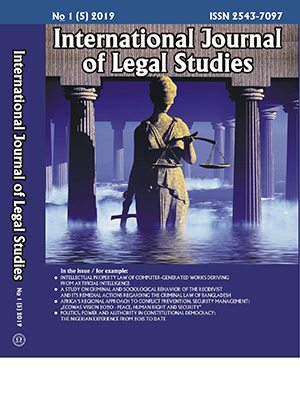BIOPIRACY, A BIOLOGICAL THEFT?
BIOPIRACY, A BIOLOGICAL THEFT?
Author(s): Riya GulatiSubject(s): Criminal Law
Published by: Międzynarodowy Instytut Innowacji "Nauka - Edukacja - Rozwój"
Keywords: Biological diversity; patent; indigenous knowledge; bioprospecting; Third World Countries
Summary/Abstract: ‘Biopiracy’ is an illegal appropriation of genetic resources or traditional knowledge by way ofpatents which restrict its future use. It has been observed in a lot of cases that the developedcountries make use of the biological resources or traditional knowledge of the developingcountries while inventing a new product. And when they claim a patent over their invention,they are denied of that monopoly right. The term biopiracy itself suggests 'biological theft'however it is not always the case. A number of regulations have been made in favor of developingcountries to protect their resources and traditional knowledge but at the same time, it isevident that the developed countries do not apply the traditional knowledge 'as it is', they gobeyond it and carry out further research and experiment to develop a new product. The factthat the mere substance in a new product is a part of traditional knowledge of a particularcountry is not a suitable ground to revoke the application of patent. In most of the cases, patentshave been denied to the developed countries on the ground that there was no novelty intheir product as the product has been developed by using developing country's traditionalknowledge is not justified. The interest of the patentee should also be taken into consideration.
Journal: International Journal of Legal Studies (IJOLS)
- Issue Year: 5/2019
- Issue No: 1
- Page Range: 317-350
- Page Count: 34
- Language: English, Polish

